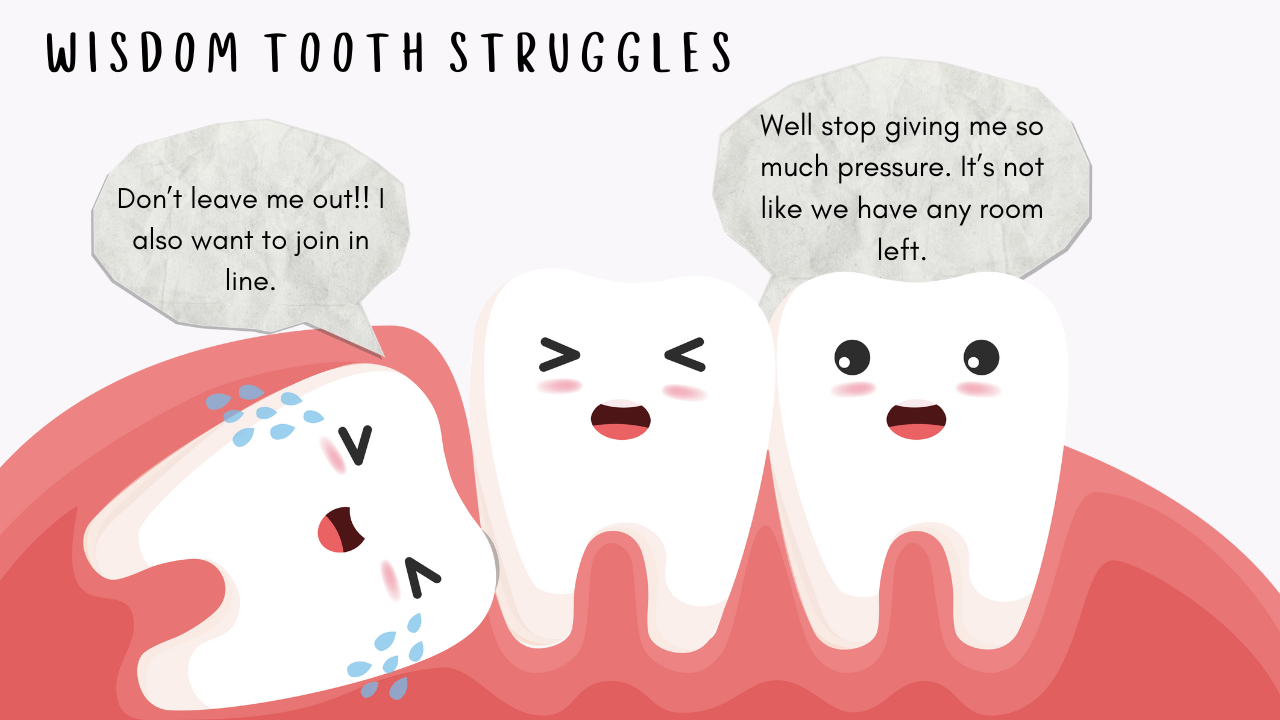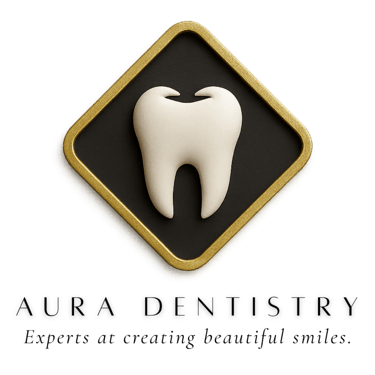

Why Do Wisdom Teeth Cause Pain — and When Should They Be Removed?
Most adults develop four wisdom teeth (one in each corner of the mouth) between the ages of 17 and 25. These are known as third molars — the last teeth to emerge.
For many people, however, these teeth become troublesome rather than useful. Pain, swelling, infection, or misalignment often accompany their eruption. Understanding why this happens helps patients make informed decisions about whether and when to remove them.
Why There’s Often “No Room” for Wisdom Teeth
From a functional and evolutionary point of view, modern humans’ jaws have become smaller over time — a change linked to diet and jaw usage.
Early humans had broader jaws to accommodate a coarse, unprocessed diet requiring heavy chewing.
Modern diets (soft, cooked, processed foods) and less masticatory stress have led to smaller jawbones through evolution.
Despite this reduction in jaw size, the number of teeth hasn’t changed — we still develop 32 teeth, including four wisdom teeth.
As a result, there’s often insufficient space for wisdom teeth to erupt properly. When the jaw cannot accommodate them, they become impacted — trapped partially or fully within the gums or bone — leading to pain and complications.
Common Reasons Wisdom Teeth Cause Pain
Impaction and Pressure
When there’s no space for eruption, the tooth presses against neighboring structures, causing pain, jaw stiffness, or discomfort. Impacted teeth can also disturb the alignment of other teeth.Infection and Inflammation (Pericoronitis)
Partially erupted wisdom teeth leave a flap of gum tissue where food debris and bacteria collect. This leads to inflammation, infection, swelling, and bad breath.Decay and Gum Disease
Wisdom teeth sit at the farthest end of the mouth, making cleaning difficult. Bacteria and plaque easily build up, leading to decay in the wisdom tooth and sometimes the adjacent molar.Cyst or Tumor Formation
Fluid-filled sacs can form around an unerupted tooth, occasionally turning into cysts or benign tumors that damage bone and neighboring teeth.Referred or Jaw Pain
The pressure or inflammation around wisdom teeth can cause jaw pain, headaches, or ear discomfort due to nerve proximity.
Why Dentists Recommend Wisdom Tooth Removal
Removal is considered when wisdom teeth:
Cause pain, infection, or repeated swelling.
Are decayed or damaging the neighboring molars.
Are contributing to gum disease or bone loss around nearby teeth.
Interfere with orthodontic treatment or alignment.
Are impacted and likely to cause future complications.
Some dentists may also suggest preventive removal, especially in younger patients, since healing is faster and roots are less developed. Research from the American Association of Oral and Maxillofacial Surgeons (AAOMS) supports early evaluation and intervention to prevent long-term damage to the second molars.
That said, not all wisdom teeth need extraction. If they erupt fully, align correctly, and can be cleaned properly, they can remain without issue. Your dentist will assess this using X-rays or 3D scans.
The Functional Evaluation: What We Look For
At Aura Dentistry, every wisdom tooth case is evaluated with a functional and anatomical perspective:
Jaw size and tooth angulation: We assess if there’s enough bone and gum space for eruption.
Eruption direction: Angled or horizontal eruption increases impaction risk.
Gum health and accessibility: Can the area be cleaned effectively?
Relationship to nerves and sinuses: Important for safe surgical planning.
Patient’s age and healing potential: Younger patients usually heal faster.
This personalized approach ensures we remove teeth only when truly necessary, balancing comfort, function, and long-term oral health.
Conclusion
Wisdom teeth often cause pain because our modern jaws are smaller than those of our ancestors, leaving inadequate room for these late-erupting molars. When they become impacted, infected, or damage nearby teeth, removal becomes the healthiest choice.
At Aura Dentistry, we base every recommendation on clinical evidence, imaging, and patient comfort. Whether your wisdom teeth need removal or just monitoring, we’ll guide you toward the best, least invasive solution for lifelong oral health.
